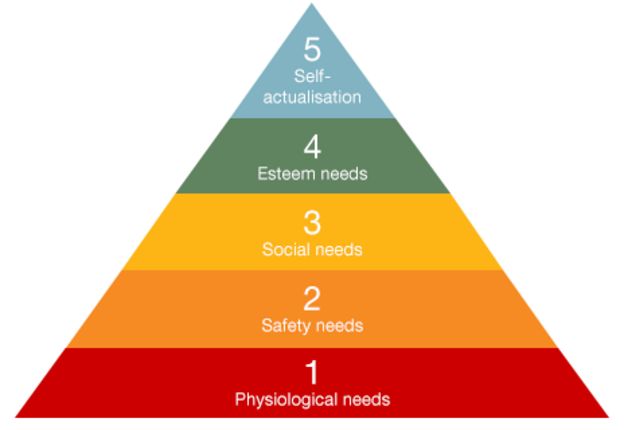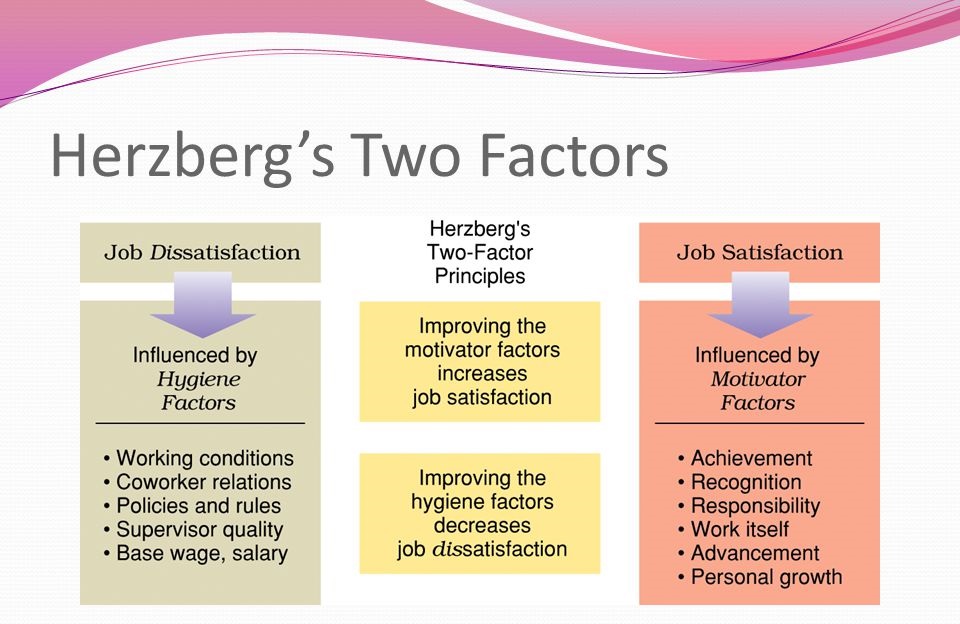After reading an external blog of Janet Choi’s: Why does your work matter?, a dazzling subtitle popped up on my screen: Maslow’s Hierarchy of Needs is Wrong. In my opinion, Janet misunderstood the principles of Maslow’s hierarchy of needs, and I cannot agree with anything she said.
In Janet’s blog, “Take another look at the bottom levels of Maslow’s motivational hierarchy, which are more about carrots and sticks, the kind of incentives that have been proven to be ineffective and misguided.” Moreover, she argues that “What the hierarchy misses entirely is that the search for meaning is intrinsic and deeply essential.”
Without any further clear explanations on “Carrots and sticks incentives”, it seems to me that Janet argues that the bottom parts of Maslow’s pyramid are ineffective and only the pursuit of meaning is the key to motivating people.
 However, Janet’s idea sounds absurd to me. The bottom parts of Maslow’s hierarchy include factors like food, money and security needs. People are strongly intrinsically motivated to satisfy these basic needs in order to survive, and this is the nature rule that cannot be against. It is pointless to talk to a homeless person about his motivation to pursue the meaning of life. Moreover, money is necessary for the first and second level but also plays a part in other levels such as status and esteem.
However, Janet’s idea sounds absurd to me. The bottom parts of Maslow’s hierarchy include factors like food, money and security needs. People are strongly intrinsically motivated to satisfy these basic needs in order to survive, and this is the nature rule that cannot be against. It is pointless to talk to a homeless person about his motivation to pursue the meaning of life. Moreover, money is necessary for the first and second level but also plays a part in other levels such as status and esteem.
Nevertheless, it is not deniable that there are some limitations about Maslow’s hierarchy of needs. Not everyone fits into this hierarchy, some people may only be motivated by money.Moreover, it is actually difficult to identify which needs have been met and which level an employee is on.
However, Maslow did update his theory and concluded that factors from the hierarchy are interchangeable depends on different individuals. Moreover, cultural differences are also taken into consideration that different countries may have different perceptions of defining the same type of need.
Photo:
W.Kremer. C. Hammond (September 1, 2013). Abraham Maslow and the pyramid that beguiled business.http://www.bbc.com/news/magazine-23902918
 Although it seems that Jordan is nothing but an awful unethical human being, it is incontestable that he is a successful motivational speaker. The way that Jordan Belfort motivates his employees through giving radical motivational speeches impressed me the most.Jeremy said that Jordan
Although it seems that Jordan is nothing but an awful unethical human being, it is incontestable that he is a successful motivational speaker. The way that Jordan Belfort motivates his employees through giving radical motivational speeches impressed me the most.Jeremy said that Jordan  and personal growth from their jobs.
and personal growth from their jobs. asically
asically As the referent power is formed, employees are motivated to work hard. However, the crucial point of developing a referent power is that this power may change people’s motivation type from extrinsic motivation to intrinsic motivation. In this movie, employees are intrinsically motivated to seek better performances since they want to be a person like Miranda. In my opinion, the power of intrinsic motivation is much stronger than the power of extrinsic motivation. This is because extrinsic motivation normally based on some financial or monetary rewards, and people may be demotivated once they do not receive the rewards anymore.
As the referent power is formed, employees are motivated to work hard. However, the crucial point of developing a referent power is that this power may change people’s motivation type from extrinsic motivation to intrinsic motivation. In this movie, employees are intrinsically motivated to seek better performances since they want to be a person like Miranda. In my opinion, the power of intrinsic motivation is much stronger than the power of extrinsic motivation. This is because extrinsic motivation normally based on some financial or monetary rewards, and people may be demotivated once they do not receive the rewards anymore.


